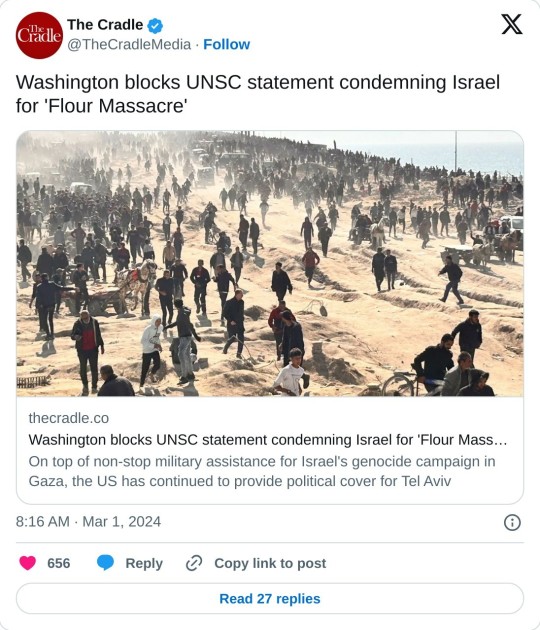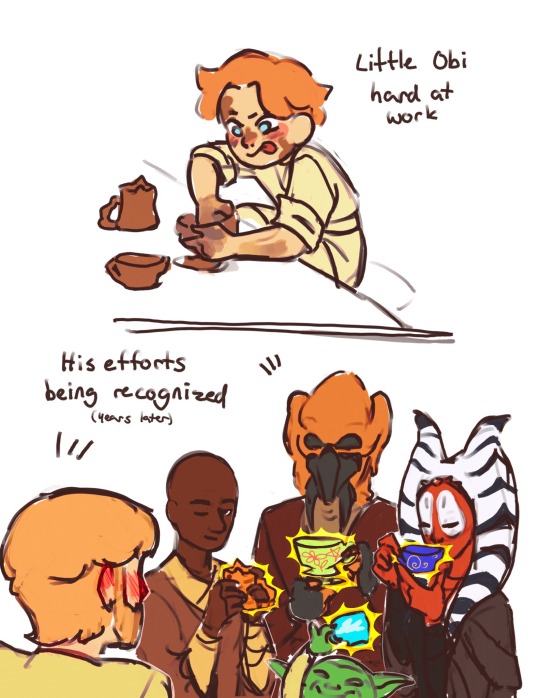#councils
Text
Austerity has been biting since 2010, when George Osborne slashed the amount of money councils could receive from central government in one of his first acts as chancellor.
Between 2010 and 2020, they lost more than 50% of their government grants in real terms. Six councils have already gone ‘bankrupt’ in the last two years while more than half of the rest say they could follow, meaning they could be taken over by Whitehall or replaced by new authorities.
[...]
Councils are responsible for 800 different services, including meeting Britain’s soaring demand for social care. They also run schools, public health, housing, planning and licensing. “Everyone thinks that councils [just] collect the bins and fix the roads,” said Revans. “We do so, so much more.”
Most council services are mandatory, meaning they must legally be delivered. But others – including leisure centres, pest control, museums, and youth clubs – are discretionary, meaning councils can choose whether to offer them or not.
[...]
When David Cameron and Nick Clegg formed the coalition government in 2010, they declared that: “The time has come to disperse power more widely in Britain today.” A year later, the Localism Act became law, giving councils “the legal capacity to do anything that an individual can do”.
In practice, that meant not a lot, because councils continue to be fiscally dependent on Westminster. London, for example, relies on strings-attached central government grants for 68.8% of its funding. New York, by comparison, only depends on central government for 26% of its budget, and Paris just 16.3%.
Councils can also generate revenue from council tax and business rates, an equivalent tax on business premises. But the Localism Act prevents councils from raising council tax annually above a cap – which is currently 5% – set by the government.
Austerity, then, has seemingly overridden any attempt at decentralisation. Fourteen years ago, your council could do a lot more for you, especially if you were in a tight spot. But year after year, it has pared back what it offers to the point that some campaigners fear residents expect less in the first place.
31 notes
·
View notes
Text
Private companies are stealing public parks
“For years now, entertainment mega-corporations have targeted cash-strapped councils as amenable, affordable hosts for their events. From Clapham Common to Glasgow Green, city-dwellers across the UK have become accustomed to basslines vibrating their windows, five-metre fences encircling their playgrounds, and security guards policing what are effectively their gardens.
“Yet as entertainment companies try to recuperate massive pandemic losses with aggressive multi-year deals, while the climate crisis renders urban summers increasingly unbearable, the privatisation of public parkland is becoming harder to swallow.
“In April, dozens of Haringey residents descended on FoFP’s biggest-ever meeting to vent their frustrations, while a recent petition demanding private companies keep their hands off Finsbury Park was signed by thousands ... For the most part, the work of groups like FoFP and FCC is polite engagement with the council to ensure the park is properly maintained. Yet as councils’ approach to major events has become more aggressive, so have the friends groups’.
“In 2016, FoFP took Haringey to court over its outdoor events policy. The group lost the case – though it did win an agreement from Haringey that the money made from the park would be spent on it. Haringey claims to have done this, though to FoFP, the numbers don’t quite add up: while in information obtained by Novara Media via an FoI request, the council claims it spent £871,626 on staffing Finsbury Park in 2020-21, many have questioned where the money is going: the park has had no park ranger since late October, no on-site manager since May. ‘If you’ve got this money […] you sure as hell didn’t spend it here,’ says Simon, pointing to the chipped paint of the bench on which she’s sitting.”
#public parks#parks#public space#green spaces#greenery#local councils#councils#local government#land use#festivals#music festivals#finsbury park#haringey#clapham common#hyde park#london#glasgow green#uk
8 notes
·
View notes
Text

The US, on 29 February, vetoed a UN Security Council (UNSC) statement that would have condemned Israel for the mass murder of over 100 Palestinian civilians who were awaiting the delivery of humanitarian aid in Gaza City.
“We don’t have all the facts on the ground – that’s the problem,” US deputy ambassador to the UN Robert Wood told reporters on Thursday.
He then claimed there are “contradictory reports” about the Israeli army's latest massacre and highlighted that Washington was focused on finding “some language that everyone can agree on.”
Thursday's veto is the fifth time Washington has blocked a UNSC statement or ceasefire resolution that would hold Israel accountable for the atrocities it has committed in Gaza.
#yemen#jerusalem#tel aviv#current events#palestine#free palestine#gaza#free gaza#news on gaza#palestine news#news update#war news#war on gaza#genocide joe#united nations#united nations security council#joe biden#gaza genocide#genocide
21K notes
·
View notes
Text

Comic of this here.
31K notes
·
View notes
Text

43K notes
·
View notes
Text
Proposed density reforms expose NIMBYs as racist
Those with influence—often white and privileged—shape policies and practices that adversely impact non-white immigrants and the Indigenous.
Communities of color, especially Indigenous Australians, suffer from discriminatory decisions that seek to preserve white majority culture on a council-by-council basis.
Hiding behind "Heritage listings" or NIMBY-ism to protect "the character" of a white-majority suburbs needs to end.
Those in opposition to COMMON SENSE density improvements near train and metro lines may not realise it, but their talking points are mostly racist dog-whistles.
News Corp, of course, has plenty of coverage of the NIMBYs and their pathetic battle cries:
https://www.news.com.au/national/nsw-act/politics/sydney-mayors-antidevelopment-protesters-hit-nsw-parliament-iagainst-increased-density/news-story/cd8d673206b2efda374d2b9cf814863e
Australia’s capital cities, especially Sydney, grapple with a complex web of real estate practices that shape urban landscapes. Three significant phenomena—redlining, community-led NIMBY-ism, and the strategic use of heritage listing—are interconnected and deeply rooted in racism.
Let’s explore how these practices intersect and perpetuate inequality.
Redlining
Historical Context: Redlining emerged in the late 1930s in the United States. Real estate professionals and public sector actors developed color-coded maps to assess areas’ “riskiness” for housing investment and mortgage lending. These maps explicitly relied on racist assumptions, blocking Black households and other communities of color from homeownership opportunities based on race, ethnicity, and religion1.
Australian Parallel: Australia experienced similar discriminatory practices. Although it wasn't called “redlining,” racially biased lending policies existed. Indigenous Australians and non-white immigrants faced barriers to homeownership due to discriminatory practices by banks and real estate agents.
Community-Led NIMBY-ism
NIMBY-ism (Not In My Backyard) refers to local opposition to new developments, often driven by existing residents. While NIMBY-ism can arise from various concerns, it sometimes masks underlying racism.
Racial Dimension: In Australia, NIMBY-ism disproportionately affects marginalized communities. When residents resist affordable housing projects or apartment buildings, they inadvertently perpetuate segregation. These actions reflect a fear of change and a desire to maintain the status quo, which often aligns with racial biases.
Heritage Listing as a Tool of Exclusion
Heritage Listing: Designating buildings or areas as “heritage” aims to preserve historical and cultural significance. However, this tool is increasingly used to block development.
Racial Implications: Heritage listing can reinforce racial disparities. In Sydney, for instance, heritage protection disproportionately favors affluent neighborhoods with European colonial history. Meanwhile, sites significant to Indigenous Australians or other non-European communities receive less attention. This selective preservation perpetuates racial inequality by excluding certain narratives from urban memory.
The Roots of Racism
Implicit Bias: These practices stem from implicit biases—unconscious prejudices that shape decision-making. Real estate professionals, policymakers, and residents may not overtly harbor racist beliefs, but their actions reflect systemic racism.
Power Dynamics: Racism in real estate operates within power structures. Those with influence—often white and privileged—shape policies and practices. Communities of color, especially Indigenous Australians, bear the brunt of discriminatory decisions.
Legacy: The ghosts of historical redlining and discriminatory practices continue to haunt our cities. The denial of housing opportunities based on race persists, albeit in subtler forms.
To dismantle racist tendencies (whether overt or implicit), we must acknowledge their historical roots and actively work toward equitable housing policies.
Australia deserves inclusive cities where everyone has a place to call home.
So do us all a favour and check yourself before you start banging on about "protecting the character of a (white-euro) suburb" or "preserving the (white-euro) history of a street / building / house".
#australia#real estate#racism#discrimination#heritage listing#sydney#councils#new south wales#nsw government#redlining#nimby#affordable housing#density#transit#public transportation#equity
0 notes
Text
Are planning conditions worth the paper they are written on?
I will hold a hand up and say that up until a few weeks ago I did not know a great deal about planning conditions and S106 funding agreements. Since then, from delving into the lack of provision of cycle routes in my local area, and potential opportunities to improve their connectivity, I know quite a bit more. On the face of it, the issue probably doesn’t seem particularly riveting and you’d…

View On WordPress
#accessibility#accountability#Bedfordshire#councils#planning agreements#public transport#S106 funding#transparency#Transport
0 notes
Text
You know with councils getting really picky about recycling they are going to end up with people fly-tipping. The people in the council thinking that their shitty ass tactics are going to make their job easier is just going to end up backfiring. If they want to be lazy about their jobs they should get their salaries decreased. They forget they are public servants, the public are not there to serve them.
1 note
·
View note
Text
I headcanon that all of Yoda's finest teacups were made by younglings
In fact most masters of the order's finest teacups were made during crèche crafting time when the kids were learning pottery.

#what im saying is that if one jedi is mad at another#they will serve tea in a normal store bought boring looking teacup and not the wonky colourful child made ones#like they can feel the joy an creativity flow from the cups in the force amd it just makes tea time just so much better#so receiving tea in a store bought cup feels more lifeless (unless its a gift from a friend outside the temple or sth idk)#you know youve made it as a jedi when a youngling gifts you a teacup#yoda has multiple of those vitrine shelves to showcase his gigantic collection#Star Wars#obi wan kenobi#mace windu#shaak ti#plo koon#yoda#jedi council
5K notes
·
View notes
Text
#Austerity Measures#Budget Allocations#Budgetary Changes#Councils#Economic Impact#Finance Minister#Financial stability#Fiscal Decisions#Funding Cuts#Government Policy#Local Authorities#Local Communities#Local Government#Political Decision#Public Funding#Public Services#Public Spending#rishi sunak#Taxation Policies
0 notes
Text
ICO COMPLAINTS
SOME OF THE MOST CORRUPT REPEAT OFFENDERS – GO UNPUNISHED
Data protection complaints Q4 2021/22
Data protection complaints Q1 2022/23
Data protection complaints Q2 2022/23
Data protection complaints Q3 2022/23
Source: ICO
Please Donate to A369 HERE or Subscribe For £3.69 Monthly Donation
WordPress
TLT LLP
https://ico.org.uk/media/about-the-ico/data-sets/4023007/dp-q1-2022-2023.csv
BW…

View On WordPress
0 notes
Text
Councils call for total ban on disposable vapes by 2024
Local councils in England and Wales have called for a ban on disposable vapes, citing concerns about litter, fire hazards, and appeal to children.
The Local Government Association (LGA) is calling for a ban on these single-use devices by 2024, highlighting the staggering 1.3 million vapes discarded each week in the UK, and that they pose a fire risk due to their lithium batteries.
The UK Vaping…

View On WordPress
0 notes
Text


RHAENICENT + EYES
#house of the dragon#hotd#rhaenyra targaryen#alicent hightower#hotdedit#rhaenicent#hotd gifs#dailyhotdgifs#rhaenicentdaily#gameofthronesdaily#emma d'arcy#olivia cooke#the half year queen#the queen in chains#1x09#1x10#the green council#the black queen#mine*#edits*
5K notes
·
View notes
Text
The U.S. will use its veto power against a Palestinian bid to be recognized as a member state of the United Nations during a vote at the Security Council expected to take place Thursday evening.
Vedant Patel, principal deputy spokesperson for the State Department, described as premature an effort by the Palestinian Authority (PA) to gain member status at the U.N.
He said there was not unanimity among the Security Council’s 15 members that the Palestinian Authority had met the criteria for membership, with unresolved questions over the governance of the Gaza Strip, where Israel is in a war to defeat and eliminate the controlling power, Hamas.
“And for that reason, the United States is voting no on this proposed Security Council resolution,” Patel said.
Earlier it was revealed that the United States was secretly pressuring other members of the Security Council to shoot down a Palestinian state membership so the US wouldn't have to use its veto as that would lead to a wave of local and international criticism for Joe Biden.
#yemen#jerusalem#tel aviv#current events#palestine#free palestine#gaza#free gaza#news on gaza#palestine news#news update#war news#war on gaza#palestinian state#two state solution#united nations#security council#joe biden
12K notes
·
View notes
Text
Economic freedom decline
15-min #cities:#councils attempt herd us into spaces they totally #control
#Congress,#Biden adm. attempt to restrict #1A with the excuse of limit #TikTok #Telegram #AmazonWS et al
#globalists pursued ultimate #power by #CoV but only 50% #Americans vaxxed
https://salvatoremercogliano.blogspot.com/2023/06/economic-freedom-decline.html?spref=tw
#councils#control#congress#biden adm#1A#tiktok#telegram#amazonws#globalists#covid#power#american vaxxed
0 notes
Text

3K notes
·
View notes